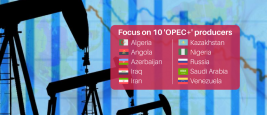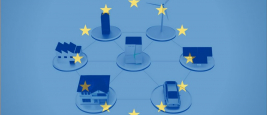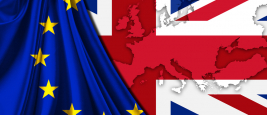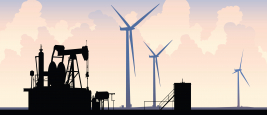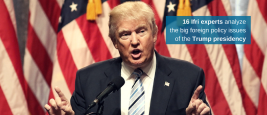
Carole MATHIEU
Former Head of EU Policies, Center for Energy & Climate
Research Interests:
- Climate change governance
- European energy policy
- Electricity markets
- France
From 2014 to 2022, Carole Mathieu was Head of EU Policies at the Center for Energy & Climate of the French Institute for International Relations (Ifri). Her research areas primarily covered climate change policies and the transformation of energy systems, European energy policy, and security of gas supply.
Prior to joining Ifri's Center for Energy & Climate, she was an analyst at the French Energy Regulatory Commission (2010-2014) where she was actively involved in defining and defending the positions of the French regulator in the discussions with European Institutions, network and infrastructure operators and market players. Her work focused on the harmonization of European gas network and market rules and on questions relating to energy security of supply of the European Union. She has regularly conducted training sessions at the French Gas Association (AFG) on the EU energy policy and on energy markets regulation. Holding a Master’s degree in Public Administration – Energy from Sciences Po Paris, Carole Mathieu has also studied at Boston College (Massachusetts, U.S.).
At a time when the European Union (EU) is discussing its long-term climate strategy and drafting new legislation to foster the decarbonization of its gas sector, a close look at the experience of Denmark, Germany and Italy with renewable gas production can provide valuable lessons.
When it comes to energy and electricity in particular, there can be no winner in the Brexit negotiations. The only reasonable objective should be to minimise losses and avoid trade friction.
On 22 June 2018, “OPEC+” oil Ministers (Organisation of Petroleum Exporting Countries members and an ad hoc alliance with several non-OPEC producers, notably with Russia, Kazakhstan and Azerbaijan) will gather in Vienna to discuss the status and future of...
With the launch of its “battery alliance”, the European Union is finally taking up the industrial battle with Asia and hopes to meet a large share of the surging demand for electrical batteries. Yet, the clock is ticking and the future of battery manufacturing in Europe depends primarily on...
This study weighs up the different strategic approaches that Europe may adopt in the industrial race for electrical batteries, taking into account the demand potential for e-mobility and stationary storage, the global competitive landscape and the policy support for local players in Asia and...
On June 23rd, the UK voted 51.9% to 48.1% to leave the European Union. While the referendum outcome was not legally binding, the broad political consensus that has since emerged across both Remain and Brexit camps has been that the will of the majority must be upheld. So while the UK leaving...
This chapter covering the French energy transition model is part of a broader study conducted by the Institute of Advanced Sustainability Studies (IASS), in preparation of the German Presidency of the G20. Based on the analysis of fourteen national strategies, the IASS study considers the...
This HET report assesses the impact of sustained low fossil fuel prices on the transition to a low carbon energy system.
What will become of US foreign policy under Donald Trump? A selection of Ifri researchers has come together to offer their thoughts on this question. Our experts cover an array of topics through 14 contributions, ranging from the future Sino-American relations, through US engagement in the...
In December 2015, a new international climate agreement was adopted, paving the way for increased mitigation and adaptation efforts.






